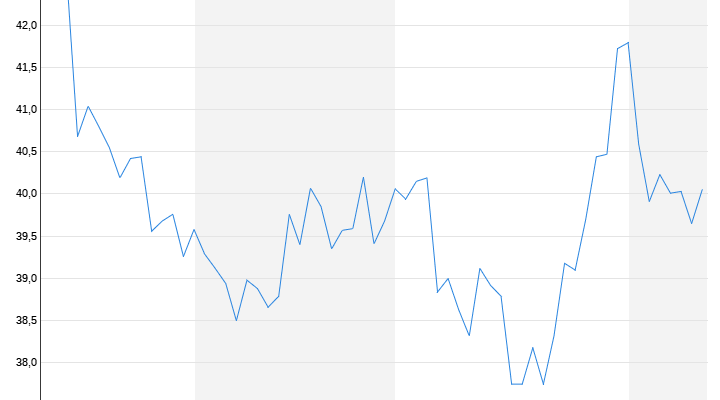“High economic risk”
Austria wants to overturn contracts with Gazprom
February 12, 2024, 7:09 p.m
Listen to article
This audio version was artificially generated. More info | Send feedback
The latest developments in gas imports in Austria alarm the Energy Minister. Last December, the share of Russian natural gas climbed to a record 98 percent. That carries risks. Long-term contracts should therefore now be revoked.
Austria’s Energy Minister Leonore Gewessler wants to end the long-term contracts between the oil and gas company OMV and the Russian energy company Gazprom in view of record high volumes of Russian natural gas in the country. “We have to prepare for the exit from the contracts,” she said. The contracts with Gazprom were extended early in 2018 until 2040 and provide for the mandatory purchase of large quantities of natural gas. According to Gewessler, this is one of the reasons for the high proportion of Russian gas in the country.
“The high level of dependence on Russian gas supplies represents a major economic and security risk for Austria.” It is also used to finance the war in Ukraine. The minister pointed out that Russia had unilaterally reduced gas quantities in 2022. In addition, the expiry of the transit contract through Ukraine in 2025 poses the risk that Russia will cut back on deliveries again.
“If unilateral non-fulfillment of the contract gives us options for action, then we should not only examine it, but also implement it.” The economic research institute Wifo is expected to analyze the economic impact of a contract termination and the dangers of a longer dependency on Russian gas by the summer. It is unclear on what basis an exit from the contracts could take place.
OMV initially sees politics as having its turn. “Russian natural gas is not subject to sanctions in Europe and is imported by several countries – via pipelines or LNG terminals. If the legislature wants to phase out Russian gas, the legal basis for this must first be created,” the partially state-owned company said upon request . The company still does not want to provide details about the contracts with Gazprom. These would be subject to confidentiality.
OMV also pointed out again that it could supply its customers with 100 percent non-Russian natural gas if necessary. According to the Ministry of Energy, gas consumption in Austria fell to 86.4 terawatt hours (TWh) last year from 94.8 TWh the year before. However, the share of Russian natural gas climbed to a record level of 98 percent in December, after falling for a longer period from summer 2022. “This development proves that the players in the liberalized gas market are making too little effort to reduce our dependence,” criticized Gewessler.
Broader list of gas orders
In order to reduce dependence on Russian natural gas, the minister’s plans would require gas suppliers to place their gas orders on a broader basis. “If the gas suppliers do not act on their own initiative in the liberalized gas market, then legal obligations are required.” The past few months have shown that there is enough non-Russian natural gas in Europe. Nevertheless, according to Gewessler, Austrian energy companies do not buy enough non-Russian natural gas.
A two-thirds majority in parliament is required for a legal obligation. It is unclear to what extent the Greens’ coalition partner, the conservative People’s Party (ÖVP) under Chancellor Karl Nehammer, is involved in the plans. “These proposals are not entirely new, they are also known to our coalition partner, we are now working on the legal templates and then we will start discussions as quickly as possible,” said Gewessler. Parliamentary elections in Austria will take place in autumn at the latest.
